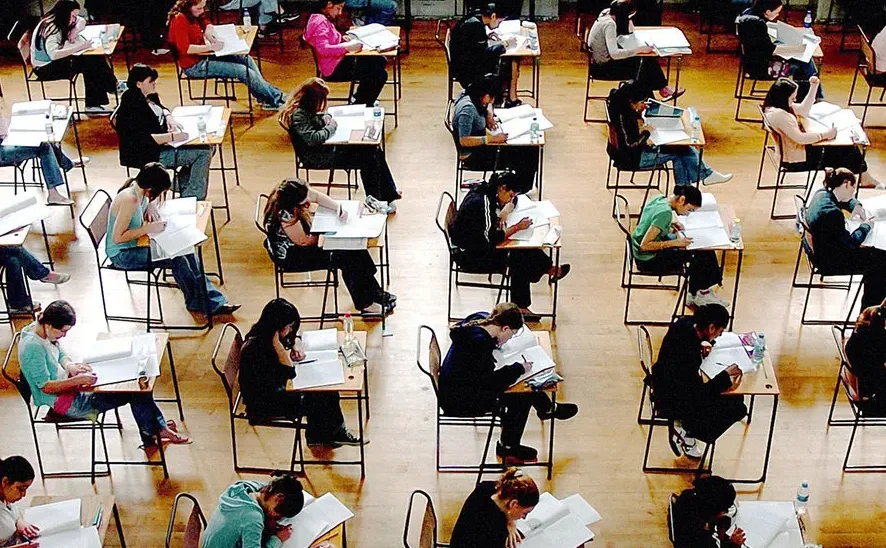
Colette Moffroid & Margot Lee | Arts and Entertainment Editors
September 12, 2025
As college applications continue to draw closer for the Class of 2026, the stress of the workload is beginning to quickly become a reality. Many of the early decision deadlines are due in early November and regular decisions quickly after that in January. This year’s seniors are busy, vigorously working on their many essays and university supplemental questions making it hard to also find time to research the trends and testing options of each of the colleges you are applying to.
There have been many videos and articles circling around social media speculating that this year specifically many universities will be easier to get into because of the decrease in applicants due to the lower population of kids born in 2008. Along with the suspicion that there will be far less international students applying to United States colleges this year, which would help increase national applicants chances greatly. However, while these statistics seem probable, it is hard to confirm this data before the admissions season begins leaving the Class of 2026 with even more uncertainty, fogging their future. A senior at SCHS Catherine Golles mentions how she is especially nervous about applying to colleges because “the process is so unknown and it seems like each university wants something different from [her],” making it very difficult to complete each application to the best of her ability.
Additionally, tensions rise around how colleges handle diversity and affirmative action – the actions colleges take to increase opportunities for minority students. In June of 2023, the Supreme Court ruled that colleges are no longer allowed to use race as a determining factor in college admissions. However, it still seems to come up when schools are considering diversity on campus and socioeconomic factors. Since this ruling, colleges tend to focus more on strong essays and the socioeconomic background of each student. This idea opens a new door regarding legacy admissions, where the children of alumni may have a higher chance of admission. Critics argue that this policy is unfair for first-generation and underrepresented students, favoring white, wealthy students with family ties.

For students sending in their applications this winter, these shifts can feel confusing, but there are some key factors that you can prioritize in order to take control of the application process. Some advice for our senior class is to do research on schools and programs to find the best fit, rather than reaching for the most prestigious option. Tessa Von Dwingelo, a senior at SCHS, believes “colleges mostly judge students by numbers and statistics.” She wishes they would “focus more on character to see whether a school is truly a good fit for her passions and experiences.” Depsite that, extracurriculars matter; fill your resume with meaningful clubs and activities, showing how you made a difference in your community.
With these trends and predictions in mind, make sure to hone in on opportunities that fit your passions and goals, not letting acceptance rates define your success. Remember, each student’s journey is different, you may start your path at a small private university, a big state school, or even community college.

Leave a Reply